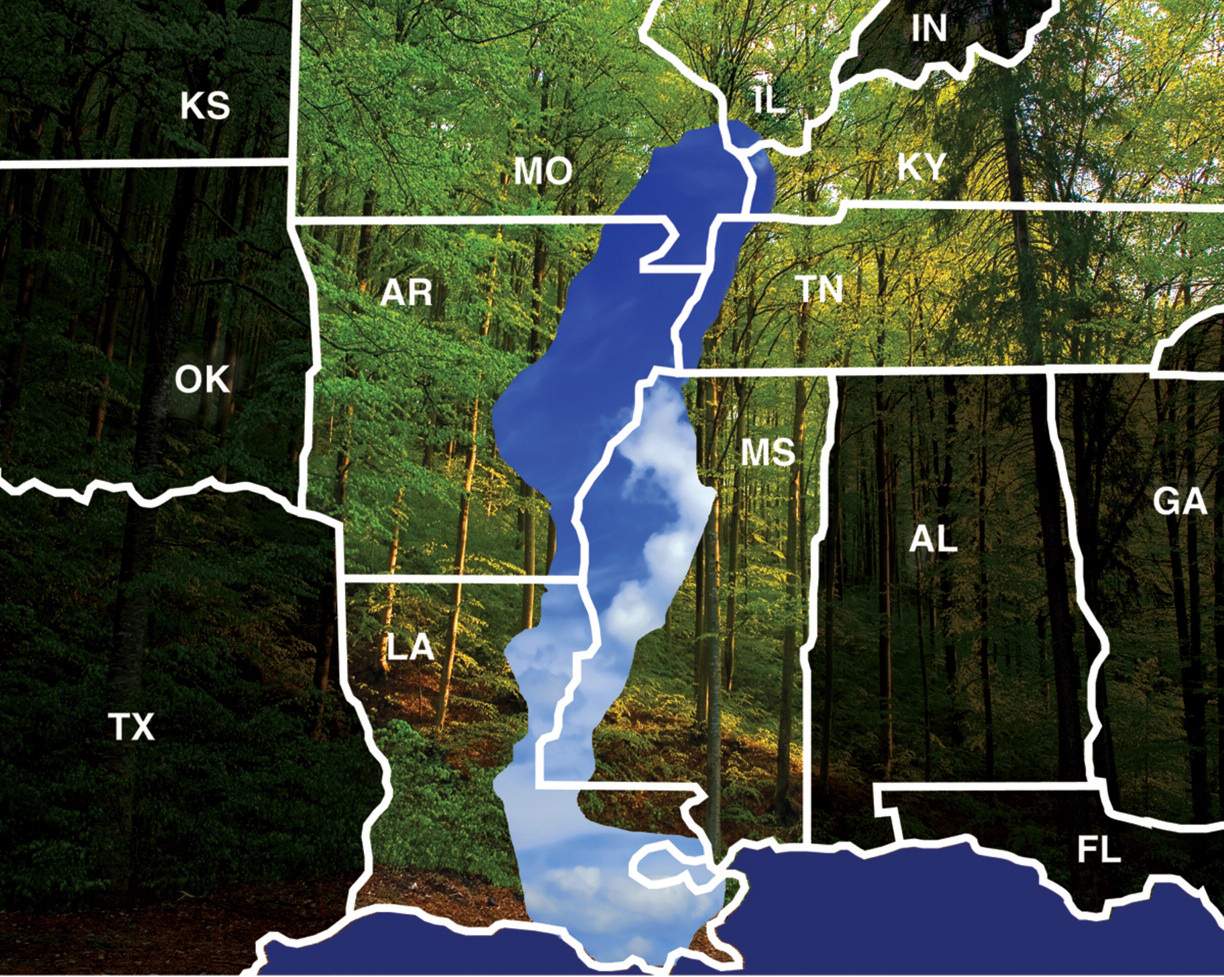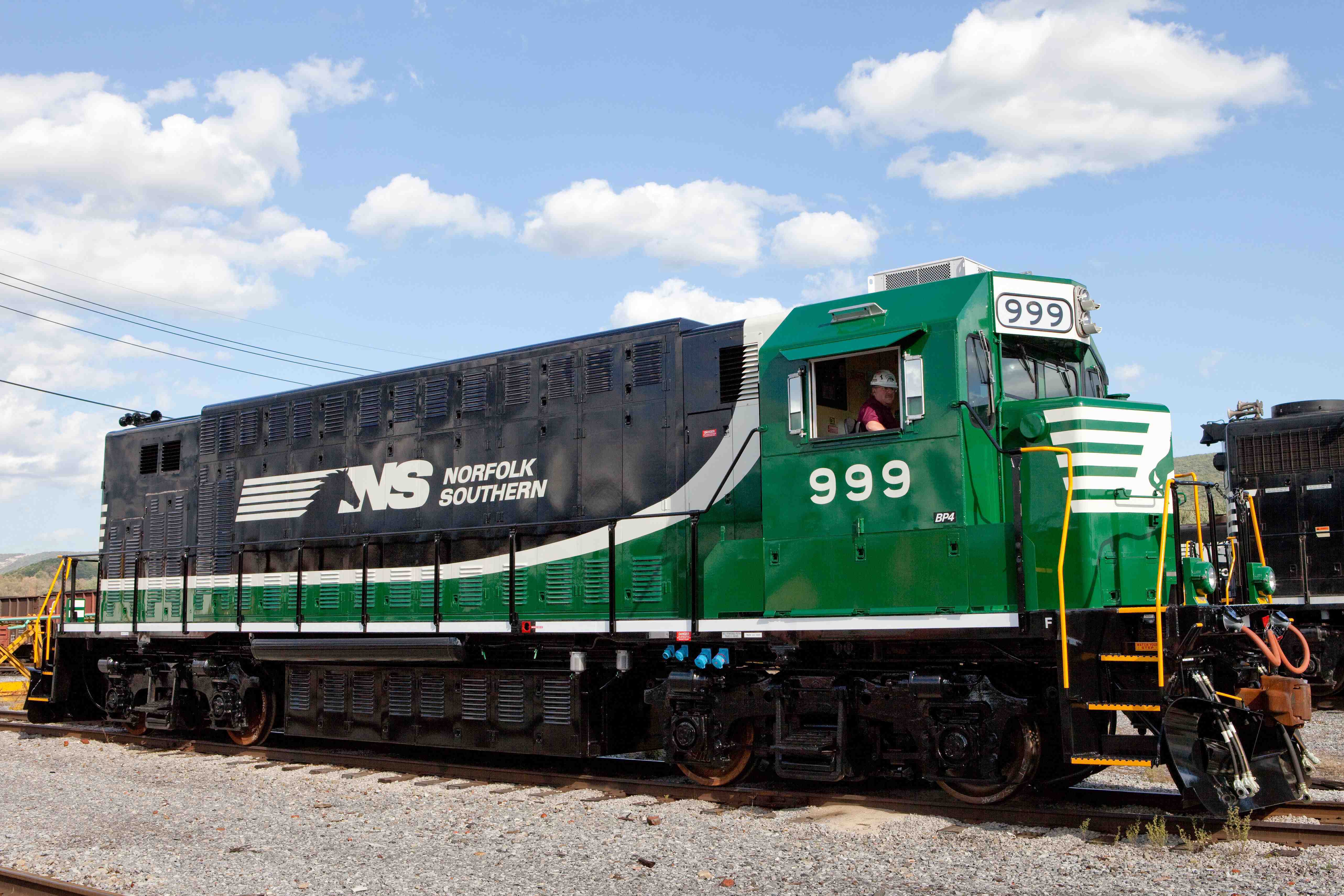Norfolk Southern Corporation, an Engine for Private Reforestation
By: Amos S. Eno
Posted on:06/28/2011Railway company will restore 10,000 acres of lower Mississippi Valley forest, benefiting landowners, ecosystems, and their bottom line
Norfolk Southern Corporation is a premier transportation company, whose railway subsidiary serves every major container port in the eastern United States, operates the most extensive intermodal network in the East and is a major transporter of coal and industrial products. Recently, NS support for a reforestation project in the lower Mississippi Alluvial Valley has propelled it to a position of leadership as one of the nation’s largest investors in private land reforestation too.
Blair Wimbush, NS Corporate Sustainability Officer, told me last week that their $5.6 million deal to reforest 10,000 acres over the next five years embodies the company’s own blen d of conservation and capitalism. “We’re a private company with shareholders who deserve to get paid, and we’ve melded this into a strategy to do as much good as we can while remaining true to our founding principles.”
d of conservation and capitalism. “We’re a private company with shareholders who deserve to get paid, and we’ve melded this into a strategy to do as much good as we can while remaining true to our founding principles.”
The roots of this NS strategy go back 14 years, when the Railroad partnered with the Fish and Wildlife Service to begin protecting habitat of the endangered Red-cockaded Woodpecker on its Brosnan Forest property. Within the past three years, NS has protected nearly 12,500 acres of the southern pine forest through a permanent conservation easement.
The area is located in the renowned ACE Basin of SC (which was one of the first NAWCA partnership projects that I helped to fund, with help from Dow, while I was at the National Fish & Wildlife Foundation). “Some 6000 acres of our protected pines have been described to us as one of the best examples of longleaf forest left in private hands in the Southeast,” says Blair.
Why Keep Land and Not Sell?
NS bought the Brosnan Forest about 160 years ago to supply fuel for steam engines and wooden cross ties. As demand for the wood decreased, various parcels were sold off, but the company kept a core of about 16,000 acres.
Over the past 50 years, the allure of the area’s forests and wildlife was not lost on company executives who established a conference center and lodge on part of the property. When development pressure from Charleston began creeping their way, NS decided to protect the property rather than sell most of it off. Why? “Because we like it!” says Blair - his shorthand way of indicating that the land’s heritage and environmental significance are important to them.
Meeting the Triple Bottom Line
Norfolk Southern has entered into a contractual relationship with GreenTrees, the nation’s leading reforestation program on private lands. Their 5-year agreement will fund GreenTrees’ work in planting an average of 2,000 acres per year.
The ingenious GreenTrees system is a winner by all three of the triple bottom line standards: people, profits, and planet. Area landowners gain economically by planting marginal farmland with native trees while large chunks of the Mississippi Valley’s bottomland hardwoods come back to life. The system allows Norfolk Southern to generate carbon credits at the same time the land is producing jobs, environmental benefits and income for landowners.
The GreenTrees Method
GreenTrees works with private landowners to plant half cottonwoods and half native hardwood species. They use a specially selected fast-growing form of cottonwood, which serves as a shade nursery for the slower growing but longer lived climax species, such as oak and cypress. Each restored private property receives a restoration design that includes native tree species suited to local conditions.
At intervals after year 10, the cottonwoods can be harvested for biofuels, and most of the oaks and native hardwoods that have established in the understory will be left to sequester carbon, though some may be harvested. Credits generated by the project will be registered with the American Carbon Registry, which requires a commitment to sustainable management for at least 40 years.
“We will be planting in a variety of Mississippi and Louisiana counties,” says Blair. “Our celebration breaking ground near Yazoo City, MS on June 20 was just one site. It was flooded just a few weeks ago, and trees planted previously had survived just fine, while all around us we saw evidence of the devastating impact of flooding on nearby cropland.”
Reduce Greenhouse Gases, Increase Environmental Benefits
In September of 2010, Norfolk Southern officially committed to the goal of reducing its greenhouse gas emissions by 10% below its 2009 base by  the year 2014. Blair says, “NS will meet it emissions reduction target with improvements to fuel and energy efficiency. This approach with GreenTrees allows us to build and create something with environmental benefits far beyond reducing our carbon footprint: soil, water, habitat, wildlife and flood mitigation. Participating farmers and private landowners benefit too.”
the year 2014. Blair says, “NS will meet it emissions reduction target with improvements to fuel and energy efficiency. This approach with GreenTrees allows us to build and create something with environmental benefits far beyond reducing our carbon footprint: soil, water, habitat, wildlife and flood mitigation. Participating farmers and private landowners benefit too.”
“It’s an investment,” says Blair, “and we think there is the potential to actually derive sufficient value from this to repay our initial investment with the return. There is some risk; we may not have a carbon market that develops as people expect.”
At this point, NS intends to sell their carbon credits on the voluntary market. “But we have other options,” continues Blair. “We could retire the credits to offset our own emissions or we could give them away as a charitable contribution.”
Blair asked me to mention that GreenTrees is currently looking for additional landowners to participate in the Norfolk Southern project. GreenTrees is seeking additional landowners from counties in Louisiana and Mississippi. Further information is, as ever, available from Private Landowner Network’s Yellowpages under “GreenTrees.”
Feedback
re: Norfolk Southern Corporation, an Engine for Private ReforestationBy: Mark Sofge on: 01/24/2012Norfolk Southern is doing today what UPS and Federal Express will have to do tommorrow. Keep leading the way as you have for the past 180 years
 Sign In
Sign In
 Sign In
Sign In
